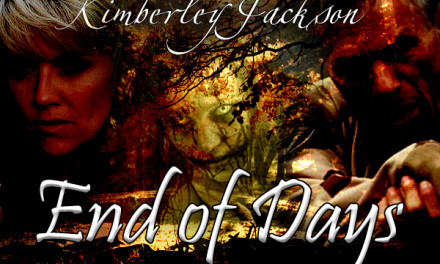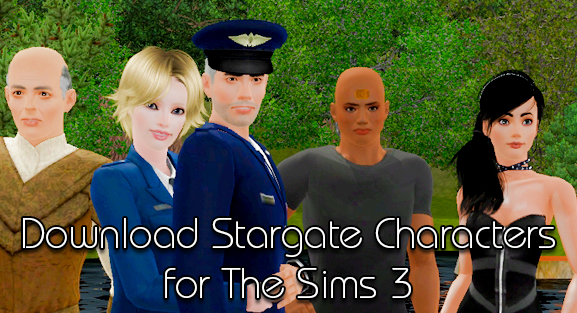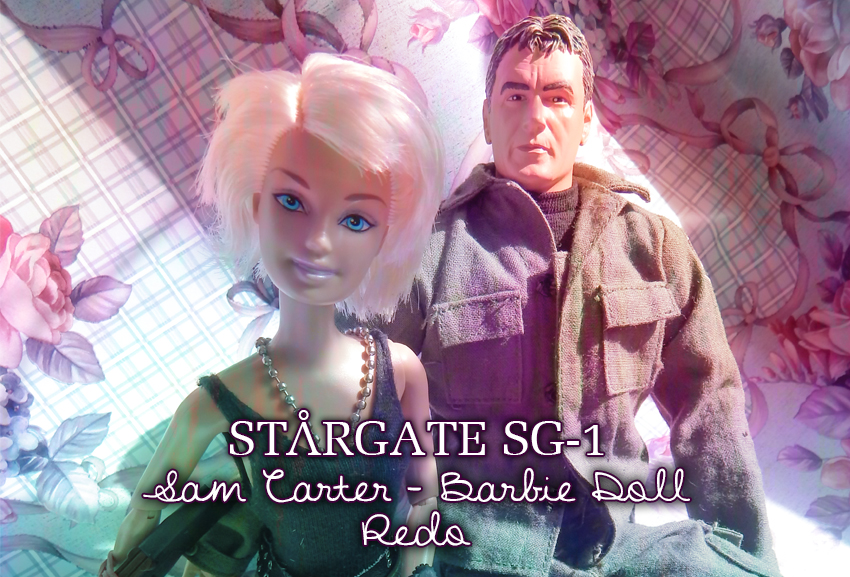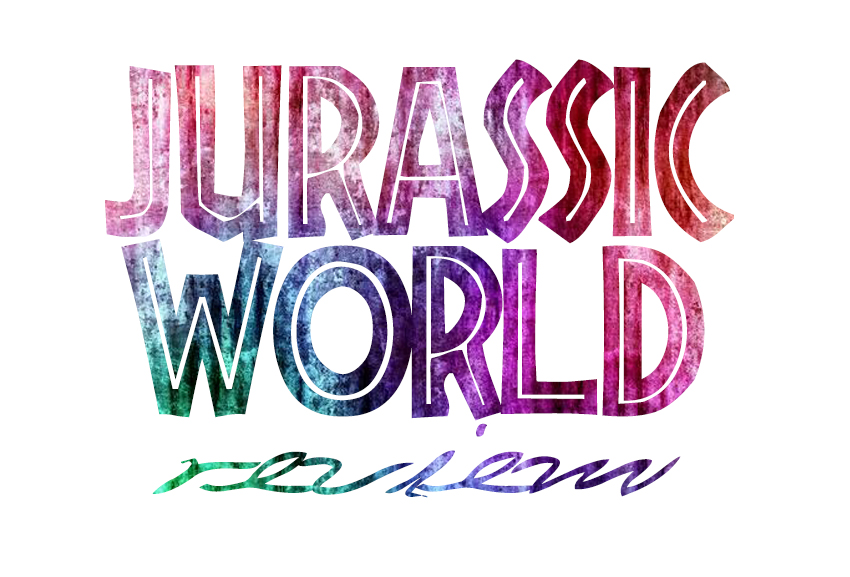
Since childhood days, I’d been a fan of dinosaurs, and the fascination with them persisted even into teen years. The Jurassic Park movies did a wonderful job at staying true to scientific facts (as known back then) while mixing in a science-fiction element of cloning an extinct species.
Michael Crichton’s novels, which I read in 2001 for the first time, were even more a critical analysis of science and the scientific method than they were of dinosaurs. The novels raised questions such as: just because we can clone an extinct species and bring it back to life (assuming that we could), should we do that? What would be the consequences for the human race as a whole?
Even the 1990s movies pale in comparison to Crichton’s written word. That, however, can be overlooked, since the movies are in fact so different that it’s possible to see them as an entirely different take on the story. In many ways 1990s movies and novels complemented each other.
And then came 2015…
As you can already imagine from the trailer and my start-out line, I was less than impressed by the new movie. Maybe it was my excitement getting in the way, maybe I had just expected more than cheap B-movie quality from this fourth movie. Let me break my criticism down into several sub-points. (Attention: SPOILERS may be ahead.)
The Plot
The general plot is nothing new. Years after the incidents of Jurassic Park I and II, a theme park has been opened on Isla Nublar. Explanations how that could possibly happen after the devastating events of the first movie aren’t given. The overall setup suggests that somehow humankind has managed to rot out all the dinosaurs living on the island only to rebuild and repopulate the park anew–an act that was deemed impossible at the end of the first three movies.
However… it happened. Jurassic World is a huge theme park featuring a whole range of herbivores that kids can pet (in a bizarre form of petting zoo), and a number of carnivores: One tyrannosaurus rex (because that’s always a smart idea), four velociraptors (even better idea) and a brand new creation–a mysterious genetically created dinosaur that never existed before. The main component is a t-rex (of course). Avid viewers may already guess which one the second major one is. That’s right: velociraptor.
Jurassic World actually starts out on the premise that after the events of the first three movies, SOME NIT thought it would be a fantastic idea to cross a t-rex with a velociraptor…
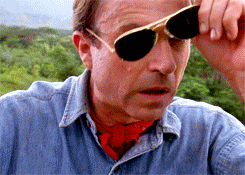
Yep… you heard that right. And it’s exactly what it sounds like. A large oversized hybrid that’s capable of camouflage and so highly intelligent it can communicate with the velociraptors (even though it lived in isolation all its life. So apparently for dinosaurs, language is somehow encoded into DNA, and doesn’t require social interaction or learning. Sadly that was one of the more credible of the incredible plot twists.)
I’m sure at this point, Dr. Alan Grant would ask exactly the same question: WTF?!? And that’s actually where the movie starts drifting off into B-movie realms. Things don’t have to make sense as long as it serves the plot; what’s important is dinosaurs breaking free, eating people. And screaming. Lots of screaming. Which brings me to…
The Characters
Oh my… I’m not sure what I expected, but that wasn’t it. The only character I can take halfway serious in this sad excuse for a movie is Owen. He also seems to be the only person in the whole damn park who has some respect for the dinosaurs–even though he trains the velociraptors like circus lions.
The rest of the characters are no more than caricatures. The owner of the park is the stereotype of a self-absorbed, overly self-confident, completely unrealistic rich man who only cares for dinosaurs as long as they bring him visitors and money–lots and lots of it.
The chief scientist, Dr. Wu, is a brainless puppet who does only what the park owner wants–even though he seems to be the same scientist who was already in the first movie (chief scientist of the first park, that went horribly wrong). For some reason he thinks it’s a good idea to give the new t-rex/raptor hybrid stealth and camouflage abilities. Just, you know, because the creature wasn’t scary enough yet…
But apparently he has some moral compass inside of him, seeing that he keeps the genetic “ingredients” of his creation a secret.
The other chief scientist, or coordinator, or secretary is the female protagonist–and couldn’t be more flat. One actually never really learns what her function is. I think she’s just there to look pretty–a marketing barbie to give the park a nice face. She’s a brainless, self-absorbed, cold princess who cares more about her hair and make-up than the imminent danger around her–or her nephews. Needless to say, her character depth is as shallow as a puddle on the pavement and doesn’t really grow during the movie.
This is even more sad considering that she’s the only female character in the whole movie (set aside the mother of the two boys, who only makes three short appearances.) Whoever has seen the original Jurrasic Park movies, will remember that both movies, Jurassic Park as well as The Lost World, featured two extremely smart female scientists: Dr. Ellen Saddler (Jurassic Park – paleo-biologist, then girlfriend of Alan Grant) and Dr. Sarah Harding (The Lost World – biologist, girlfriend of Ian Malcolm)
Both women were prime examples of modern feminism. Which seems to have taken a turn for the worse–much, much worse–in Jurassic World.
It almost appears as though Jurassic World seeks to ridicule and parody the original movies, rather than expand on them.
The Science
This was the most disappointing part for me. The original movies used the available scientific discoveries and knowledge of the 1990s. But seeing that they were made over 20 years ago, paleontologists have made progress and new discoveries. One of the most fundamental discoveries was regarding the tyrannosaurus rex, who was long believed to have had very poor vision. So bad in fact that he could only see its prey if it moved. (You may remember that part from the movies.)
However, discoveries and studies from the 2000s and 2010s have refuted that claim and established that t-rex must have actually had a more than tenfold better eyesight than humans. One would think that this development alone would hold great material for a new Jurassic Park movie–but apparently for the makers this wasn’t scary enough, so they decided to discard it and go back to the 1990s.
T-rex in the movie still obeys the 1990s science. He can only see its prey if it’s right in front of him waving a red flare. Duh! That made the movie lose the last shred of credibility it might have had at that point.
For the fun of it, I made a little list of all the unbelievably stupid things that turned the movie into a comedy for me:
- the hybrid dinosaur – really? Are humans that easily bored that a freaking t-rex becomes boring after a few years? And what kind of scientist would think this is a good idea?
- two kids being allowed to run around freely through the park – though, in all fairness, they weren’t. They slipped away from their guide. But oddly enough the other park personnel guarding the rides didn’t seem to object to two teenage boys running around without a guardian.
- two kids being allowed to enter a ball-like vehicle without adult supervision, and drive it through a wide open field with huge herbivores running all over the place. And I don’t care if it was bulletproof glass. Those dinosaurs weighed 25 tons and more. They could take on t-rex. You really think one stomp of that huge foot would keep the vehicle intact?!? There is no way that can be safe! NO WAY!
- a crashing helicopter destroying the roof of the aviary holding the pterodactyls and other flying dinosaurs–seriously, if it’s that easily destroyed, it is NOT SAFE and should not hold man-eating dinosaurs. That is why we are rennovating our nuclear reactors–so that a plane crashing down on them can’t do damage. You’d think the engineers would have put similar care into the design of the aviary, seeing that the escape of the dinosaurs would cause havoc all over Earth.
- and what is with that flying dinosaur with the t-rex head and the wings? I’m no paleontologist, but I’m pretty sure a dinosaur like that did not exist. (Prove me wrong, and I will correct this statement.)
- literally ALL of the flying dinosaurs swarm out, fly right to the main tourist points and attack all the humans. Did park personnel forget to feed them for, like, weeks that they were all starving? Or could it be that more than just the one engineered dinosaur were actually killing for fun?
Conclusion
I don’t know what the makers tried to achieve with this movie. If it’s purpose was to kill its franchise, I’d say they definitely succeeded.
All criticism aside, the movie did have some interesting, subtle messages that shouldn’t be ignored. Unlike its predecessors it didn’t criticize science itself, but rather the arrogance of capitalist science. Whereas George Hammond in the first Jurassic Park movie still self-confidently proclaimed “We spared no expense” every chance that he got, the new owner of Jurassic World seems to be all about making money rather than putting it into the safety of the park.
The original message of Jurassic Park–“Life will find a way.” (Ian Malcolm)–is forgotten. Dinosaurs are no longer a threat. The dangers of resurrecting extinct species have been conquered by humans. The next step is genetic engineering.
Science is no longer a means to discover secrets of past times, but rather to engineer new lifeforms in order to produce market commodities that the masses will pay more money to see. Jurassic World has the potential to symbolize all the perversions of our capitalist societies.
And while that could have been an outstanding message for a well researched science-fiction movie, in Jurassic World, the seriousness of the issue fades into the background of a caricature made of ignored scientific facts and exaggerated characters.
Too bad.


